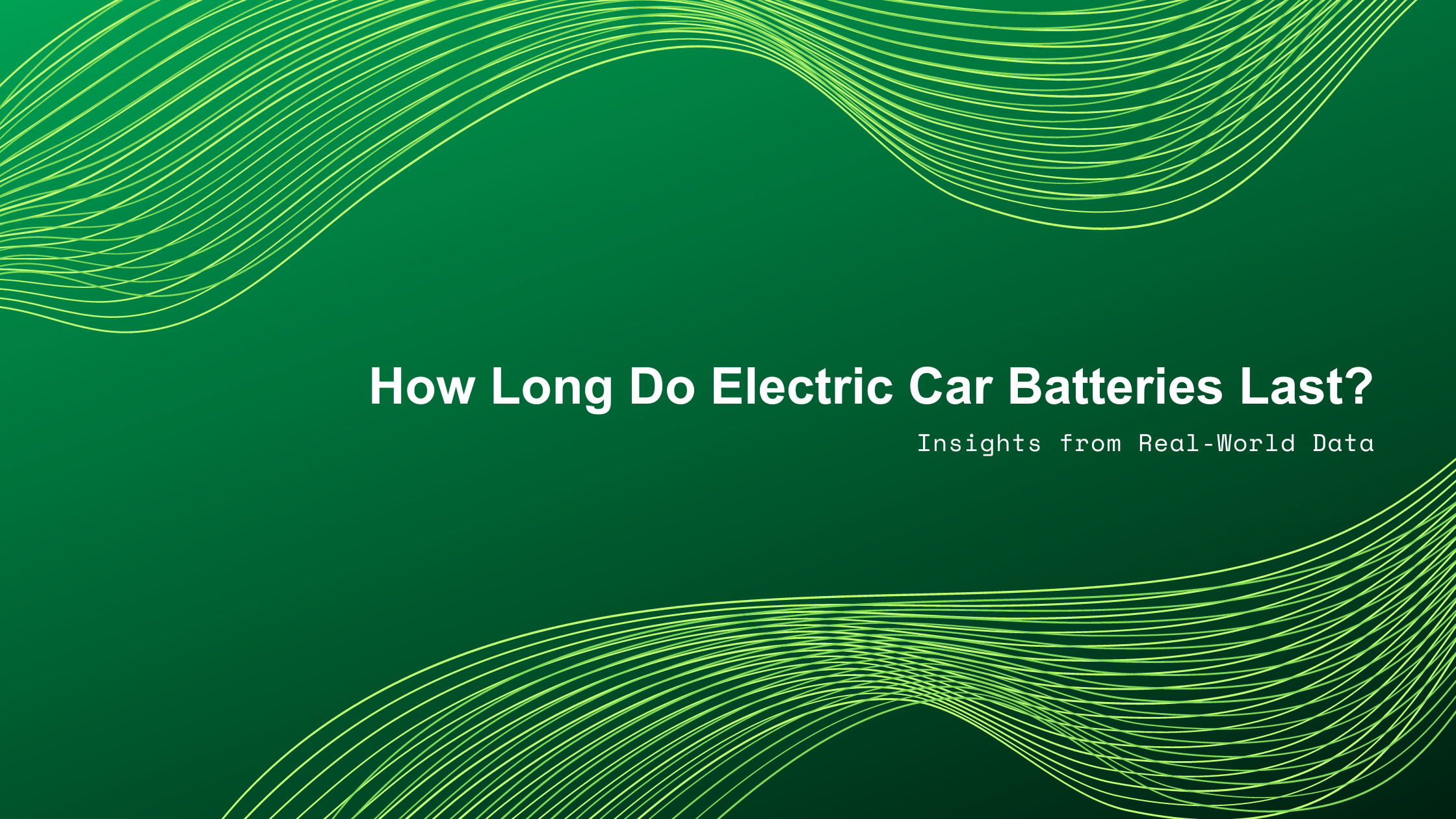
Electric Car Battery Life: How Long Does It Last? Insights from Real-World Data
Electric vehicles (EVs) have rapidly gained popularity due to their environmental benefits and advancements in technology. However, one of the most common questions potential EV owners and fleet operators have is: How long does an electric car battery life last? This question is crucial because the battery is one of the most expensive components of an EV and directly impacts its performance and value over time.
Understanding Electric Car Battery Lifespan
Based on extensive real-world data from over 6,000 electric vehicles, the answer to how long EV batteries last is encouraging. On average, EV batteries degrade at a rate of approximately 2.3% per year. This means that the majority of EV batteries will likely outlast the vehicle’s usable life, and replacement is often unnecessary. However, like all batteries, they will eventually degrade, but in most cases, this happens well after the vehicle’s life cycle is complete.
Do Electric Cars Lose Range Over Time?
Yes, electric cars do lose some range over time as their batteries degrade. For instance, if you purchase an EV with a 150-mile range today, you can expect to lose about 17 miles of that range after five years. While this decline might not significantly impact daily driving for most users, it is a consideration for fleet managers who need to maximize the value of their EVs.
Most car manufacturers offer a warranty on EV batteries, typically around eight years or 100,000 miles, which is the federal minimum in the United States. However, based on current data, EV batteries should last much longer than the warranty period.
Factors Affecting EV Battery Life
Several factors influence the longevity of EV batteries, including:
- Age: As with all batteries, the age of an EV battery plays a significant role in its degradation.
- Temperature: Batteries exposed to extreme temperatures, particularly heat, degrade faster.
- State of Charge (SOC): Operating the battery at near full or empty charge levels can impact its health.
- Charging Type: The type of charging (AC vs. DC) affects battery degradation, with fast charging (DC) generally leading to more rapid degradation.
- Usage Patterns: How frequently and intensely the battery is used also impacts its lifespan.
Also Read: EV Thermal Management: Role of Adhesives in Electric Vehicle.
Battery Degradation: Is It Linear?
The degradation of EV batteries is generally not linear. While the initial drop in battery capacity might be more noticeable, the rate of degradation typically slows down and stabilizes over time. Towards the end of its life, a battery may experience another significant drop in capacity.
Impact of Temperature and Charging Habits
Data shows that vehicles driven in hot climates experience faster battery degradation than those in more temperate climates. Additionally, frequent use of direct current fast chargers (DCFC) can accelerate the rate of battery degradation due to the higher currents and temperatures involved. For optimal battery longevity, it’s advisable to use AC Level 2 charging for most needs and reserve DCFC for occasional use.
Extending EV Battery Life
While some factors affecting EV battery life are beyond the driver’s control, there are steps you can take to extend it:
- Maintain SOC Between 20-80%: Avoid keeping the battery at a full or empty charge for extended periods. Ideally, keep the charge level between 20-80%, especially when the vehicle will be parked for a while.
- Minimize DC Fast Charging: Use Level 2 charging for regular use and reserve DCFC for situations where a quick charge is necessary.
- Protect the Battery from Extreme Temperatures: When possible, park in the shade or a garage on hot days to prevent unnecessary heat exposure.
Read also: Optimizing EV Battery Pack Assembly with High-Performance Adhesives.
Conclusion: Confidence in EV Battery Longevity
The key takeaway is that most EV batteries will outlast the usable life of the vehicle, particularly if drivers follow best practices for charging and driving. Warranties provide peace of mind, and the ongoing decrease in battery costs further reduces concerns about potential replacements.
For fleet operators, understanding battery health is crucial for making informed decisions about vehicle usage and replacement. With the right tools and data, fleet managers can ensure their EVs are used efficiently and replaced at the optimal time, maximizing the value of their investment.
In summary, while EV battery degradation is a natural process, it is slow enough that most drivers and fleet operators can expect their EV batteries to perform well throughout the vehicle’s life. As the technology continues to evolve, the confidence in EV battery longevity only grows stronger.





Post a comment